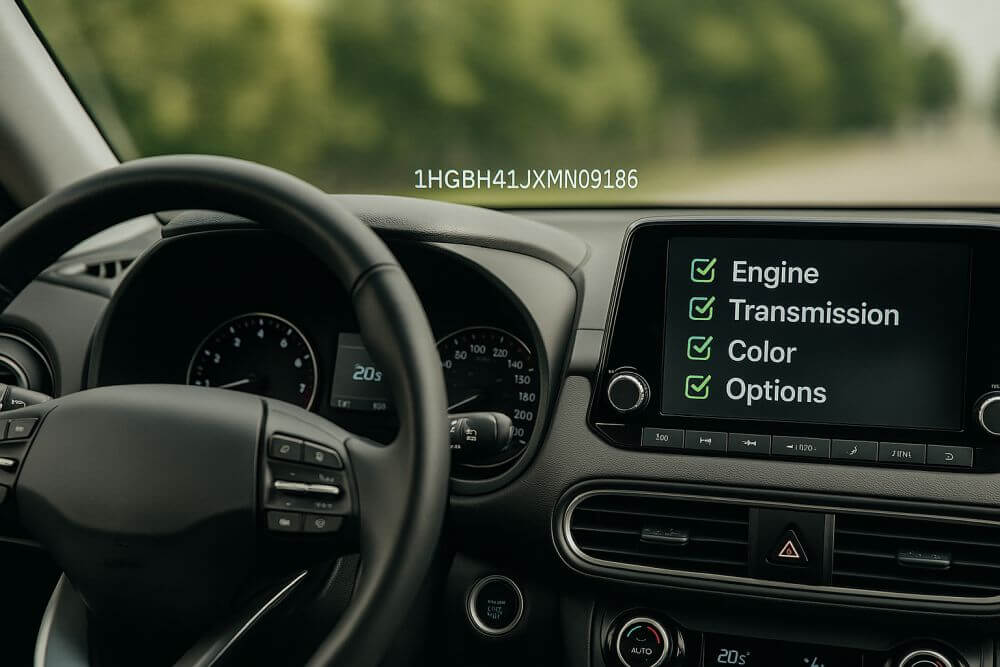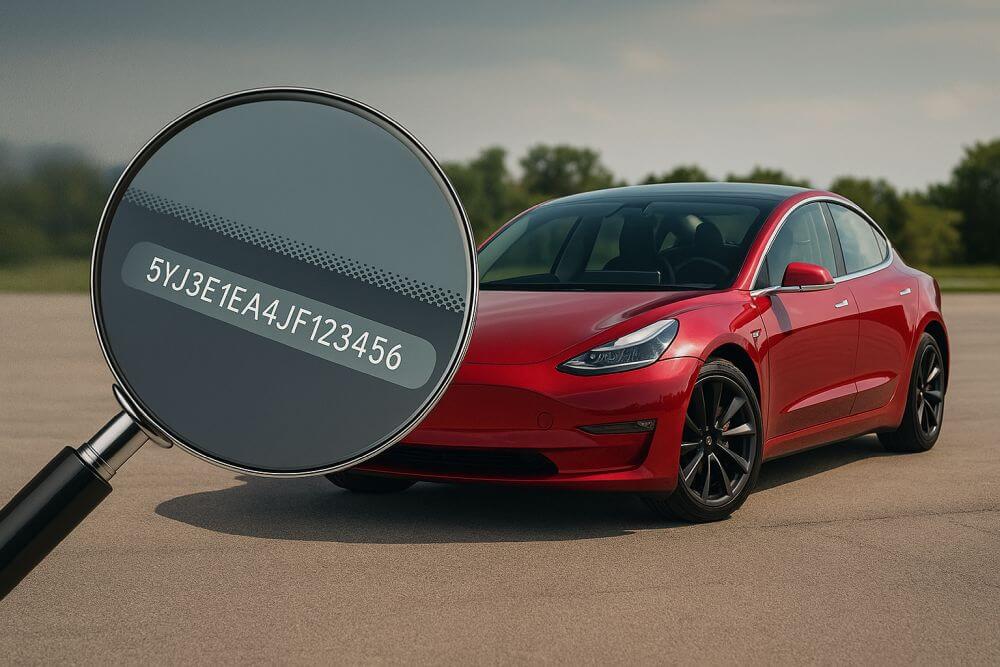Do you know what a car’s VIN code is? Knowing it allows you to do some simple research called VIN decoding. It may sound like some pretty boring stuff but a VIN code provides so much information it’s worth taking the time to learn what it’s all about.

What is a VIN?
Let’s begin with a quick explanation. A VIN is a car’s Vehicle Identification Number. Every car and truck must be assigned a VIN number at the time its manufactured. The VIN may look like a jumbled mess of letters and numbers but it is the definitive tell-all from your favorite gossip magazine explaining all you need to know about a car. And this is the very ID number you as a potential buyer can use to generate a free VIN check for every car.
What can a car’s VIN tell you?
You may be wondering how a 17 character VIN can check a car’s history. It does so by digging into Department of Motor Vehicle records, showing you potential problems, such as an unresolved recall. But it goes even further. It provides odometer readings that you can use to cross check its accuracy and lets you know how many times a car was bought and sold. In other words, a treasure trove of information digging into a car’s past. And that’s why the information is so valuable to you, the buyer.
As mentioned above, the VIN itself is made up of 17 characters. Let’s quickly explain what the letters and numbers mean.
Decoding the VIN
The first character tells you the country of origin or, in other words, where a vehicle was built. The second and third characters reference the vehicle manufacturer. Along with the eighth character, the second, third characters can also help you identify a flexible fuel vehicle.
The fourth and eighth characters provide the basics of what the car is, such as the brand, the engine size and type of vehicle. The ninth character assures you the car was authorized by the manufacturer, with the tenth character telling you the model year. Which plant assembled a vehicle is denoted by the eleventh character. The final six characters is the vehicle’s serial number.
What if a VIN is less than 17 characters?
As you shop for used cars, you may run across cars with fewer than 17 characters in its VIN. Interestingly enough, not all cars have a 17-character VIN. These are usually cars that pre-date 1981. Today’s VIN decoding tools are not capable of providing much information about cars that were manufactured before 1981.
Today, car’s this old are typically considered classics. The cars themselves from this era may not be as desirable as a late 60s muscle car. So as a buyer, a vehicle history report comes from your research. Work not only with a reputable seller but a seller who cared for the car. Which means they should have service and repair records, in addition to a list of any modifications they made that are not stock.
Where do I find a car’s VIN?
There are two places on a vehicle to find its VIN and that’s on the driver’s side at the base of the B-pillar and on the dash.
The B-pillar is where the door latches and locks shut. Open the driver’s side door and look down at the base of the pillar. You should find the VIN stamped on a thin metal plate.
The second and more common place to find a car’s VIN is on the dash, where it and the windshield meet. The easiest way to see it is by standing outside of the car on the driver’s side and looking at the dash through the windshield. You should see a small metal plate with the VIN stamped on it.
Learning how to decode a VIN can be invaluable when you are in the market for a used car. It can dig up a treasure trove of information that will help you make a smart buying decision. And smart buying gets you a car you can count on for miles of enjoyable driving.


